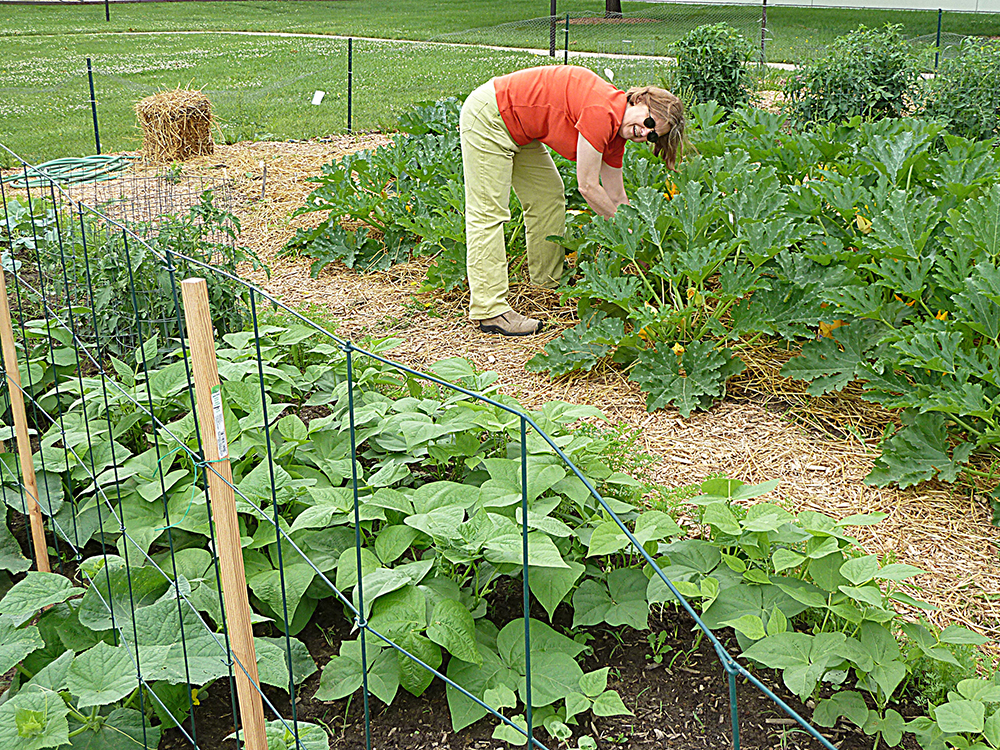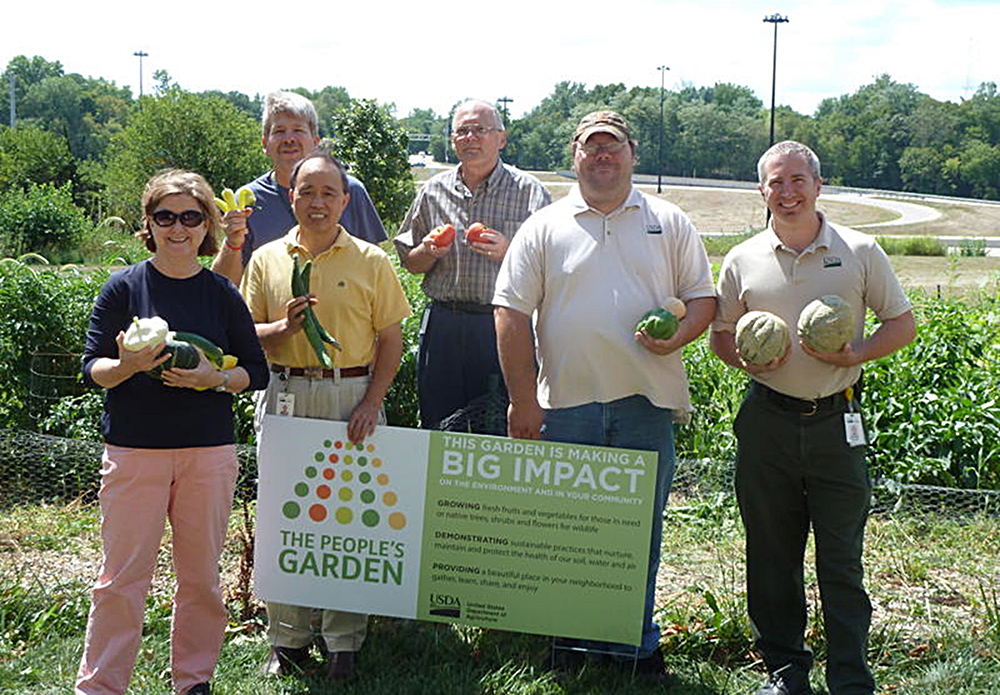
Research chemist Susan McCormick tends the garden at Peoria’s Ag Lab. She says her team is gearing up for another garden this year. (SUBMITTED PHOTO)
Since the holidays, catalogs for gardening tools and seeds might have piled up like paper compost, but spring is here, and a group of volunteer gardeners at Peoria’s Ag Lab is preparing this season.
“We’re planning and will be getting starter plants ready,” says Susan McCormick, a research chemist at the USDA Agricultural Research Service’s National Center for Agricultural Utilization Research since 1987.
“We’ll be shopping for seeds and everything locally, like at Kelly Seed and Hoerr’s and so on,” she continues. “We’re hoping to get a greenhouse extension here, so we may have to move the plot some.”
McCormick is one of a half dozen or so staffers who regularly help, she says.
“I didn’t really know much about gardening itself,” she says. “It’s been a learning experience, and fun. It seems like we drag it out as long as we can.”
Busy with lab-based research on the job, McCormick says she’s found the hands-on efforts to grow produce from seed to be an enjoyable escape.
“It’s a nice change of pace,” says the Alton native.
The 45 x 63-foot garden on the south side of the Ag Lab complex on North University stems from a 2009 U.S. Department of Agriculture initiative launched as “People’s Gardens,” named in recognition of the USDA being known as “the people’s department” when it was founded in 1862 during Abraham Lincoln’s first term.
“People’s Gardens were focused on local USDA facilities,” said McCormick, who notes the Ag Lab garden is tied to former President Barack Obama’s United We Stand program and his administration’s “Feds Feeding Families” project.
The local garden started the next year, and the Peoria effort has raised more than 14,000 pounds of produce since, donating it to food pantries and charities to help groups such as Loaves & Fishes and the South Side Mission serve the less fortunate.
After the pandemic derailed the 2020 season, the local group last year grew 2,200 pounds of food, including 1,350 pounds for Sophia’s Kitchen.
The gardeners don’t use pesticides but have had little problems with insects, McCormick says. However, typically, weeds are a common problem, and rabbits and deer were occasional nuisances despite fencing.
“It’s not like they ate a lot, but they’d leap over the fence and knock things down,” she says.
Reflecting on successful harvests, McCormick says, “Squash is pretty prolific, and we did well with potatoes and turnips and, by weight, cabbages.”
Again connecting to the 16th president, she fondly remembers harvesting 150 Abraham Lincoln tomatoes.
“They were great, beautiful Heirlooms,” she says, laughing.
Seeing the fruits of their commitment — whether picking ripe vegetables or arranging for deliveries to area pantries — has been fulfilling, she says: “It’s a sense of accomplishment.”

The gardeners pose with their produce at Peoria’s Ag Lab. (SUBMITTED PHOTO)

Recent Comments